A life dedicated to the protection of animal species
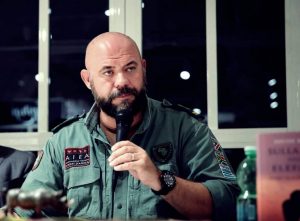
Insider Release has gathered the testimony of an African expert to underline once again the important of fighting illegal poaching. This important battle is waged not only by Africans by birth but also by individuals who regard this continent as their home, despite being born elsewhere.
He is Davide Bomben, Italian by birth but as he usually love to repeats: “African in his heart”.
Can you tell us about your background and how did you ended up in such unconventional and uncommon career?
I have always been in love with wildlife and Africa. I was conceived in Kenya during my parents Honeymoon and my very first time in Africa was when I was only 2 years old.
When I was 12 years old I had the chance to experience my very first close range encounter with a white rhino in a rhino orphanage in Zimbabwe. It was such a meaningful experience that I decided to dedicate my life to conservation. I started studying and working as a nature guide in Southern Africa, it was amazing, 10 years of incredible passion and amazing experiences. In the same period I discovered the chance to train as an anti poaching ranger in Africa and developed my career in anti poaching and guiding, 2 topics that share many aspects. I then had a phase of my life that took me into private security in Southern Africa and then in Europe. Because of this I had the chance to train with amazing instructors from South Africa, Israel, USA, Europe and Russia, it was an amazing period, very intensive and a very instructive. After a while the call of the wild rised in my spirit and I decided to go back to conservation and tourism, where I am now.
There is nothing else I would do in my life but conservation despite the long periods I spend far away from my wife and kids.
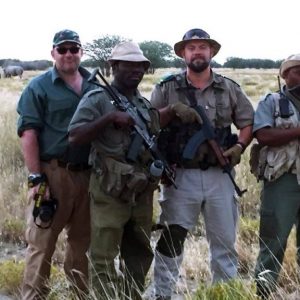
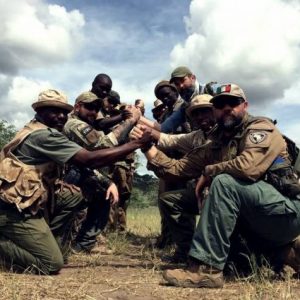
What does your organization exactly do to fight against poaching problem?
We have a very practical approach to poaching prevention. In Europe we rise funds to sponsor our activities in Africa and in Africa we do what we call RA.T.M.E..
Every park and reserve that call us (we never contacted a single one, we have always been called to help) follows the RA.T.M.E. approach:
Risk Assessment: definition of risks and solutions proposals.
Training: we have created and developed a specific 9 levels training that will rise rangers abilities and skills with a very motivational approach.
Mentoring: as the head instructor I also follow rangers in their duties, patrolling with them, flying with them and responding with them to threat. It is important to show your presence even in the hard time.
Equipping: 80% of our funds are used to choose, buy, donate and train how to use equipment for rangers. We have donated weapons, vehicles, drones, thermal vision, uniforms, Ifak, boots, tactical vests and all sorts of equipment that was worth to invest and donate.
We are working in 5 countries with about 30 active sites. At present our focus is in South Africa, Namibia and Botswana. In South Africa we and our team are active in the Kruger National Park, Sabi Sands, Timbavati, Pilanesberg and soon we will be in Madikwe, iSimangaliso and Hluhluwe Umfolozi. We are also very active in many private game reserves with our partners Noctuam.
In Namibia we operate in 3 very special reserves like Ongava, Etosha Heights and Naankuse. In Botswana we are active in 2 game reserves Limpopo-Lipadi and Ghanzi. All the reserves we are active have high profile animals to protect such as rhinos, we do not operate in places where there are no high profile animals.
Is the fight against poaching in any way connected to the fight against terrorism?
In some countries it has a direct connection like in Tanzania, Kenya and Mozambique, countries where the presence of extremist organizations are present and looking for any means of financial support. In other countries such as South Africa, Namibia and Botswana, poaching is linked to other crimes syndicates. Being the 4th most lucrative illegal business in the World it is very common to have kingpin “working” on drug dealing, prostitution and illegal weapons also dealing with wildlife crime especially when a rhino horn is sold at 100.000 USD per kg in the Chinese black market.
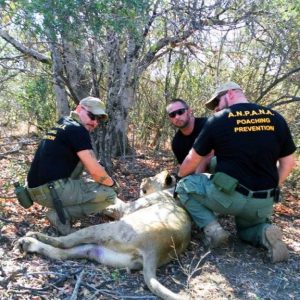
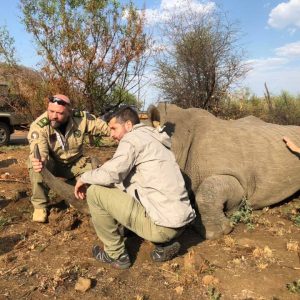
How can we win the war against poaching? In your opinion, are there any effective solutions?
We have to consider poaching as a 3 steps process. In the short term we have to work in order to empower rangers by giving them maximum support to do their job effectively. We always propose the Tactical Square, were we need good people, good training, good equipment and also good motivations.
In the mid term we have to work in order to make laws more strict on poaching and create more job opportunities for local people in order to deflect crime and create prosperity. In the long term we have to act on local communities creating ownership of their heritage (the biodiversity) and the will to protect them. Each of these phases must start now (actually it already started 10 years ago) but it needs to be amplified and supported.
Because of Covid-19 crises we have lost thousands of jobs in Africa especially in the tourism and conservation sector. Before tourists will start again flooding parks and reserves many more jobs will be lost and more people will starve and look for alternatives to feed their families. We need tourism to go back to Africa. The concept of “let’s help them at home” referred to African people migrating to Europe has to be clear and straight. Tourism is such a key factor for job creation that we need to push European governments to reopen borders and facilitate tourist to travel back to Africa.
Davide, as the representative of Rangers who are still fighting and dying everyday, if you could send a message to all those who instead support this horrible practice, especially those who live outside the African continent, what would you tell them?
It is quite difficult to explain to criminals that their actions will effect, one day or another, also them and their relatives. People polluting the World will breath polluted air and drink polluted water. Most of the criminals linked to poaching in Africa will not even understand the concept of conservation. On the other hand I would like to launch a message for all readers that have a common sense. This World wasn’t given to us by our parents but it was given to us by our kids to that we could protect it for them to enjoy it.
Adriano Margarone
for Insider Release
Do you want to report us something?
Contact:
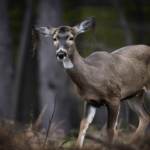


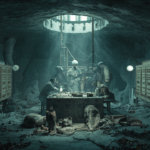
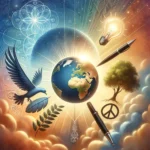
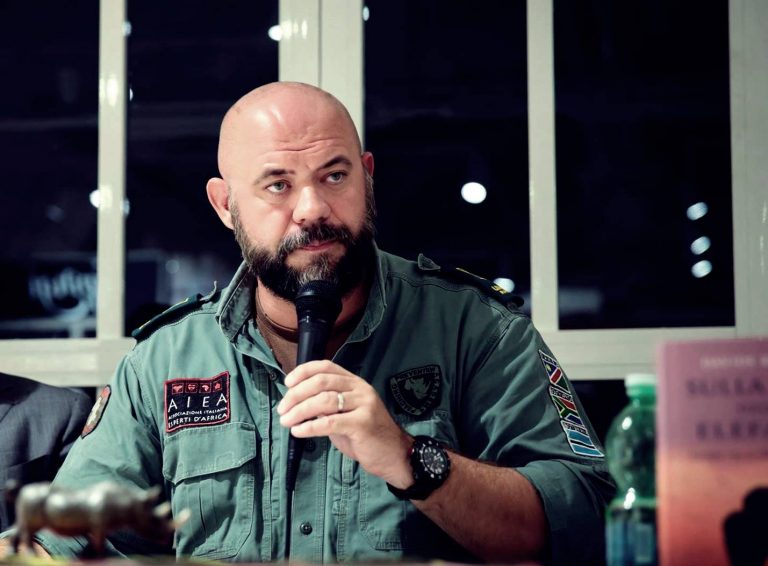
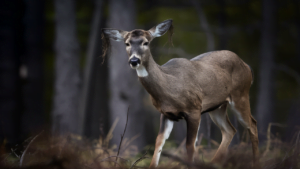


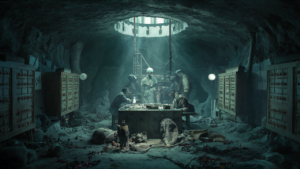
More Stories
Chinese Underground Cities: History, Uses, and Future Prospects
Discover the Yanomami: Guardians of the Amazon’s Ancient Wisdom
The Evolving Role of Private Military Companies in African Conflicts